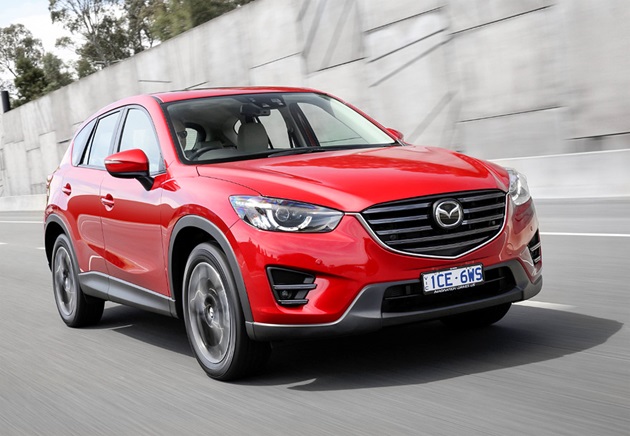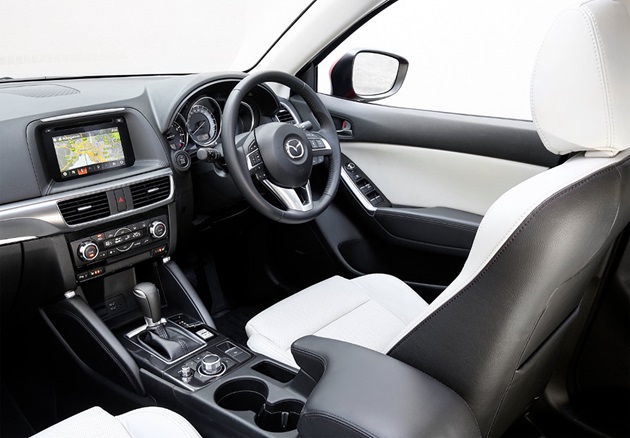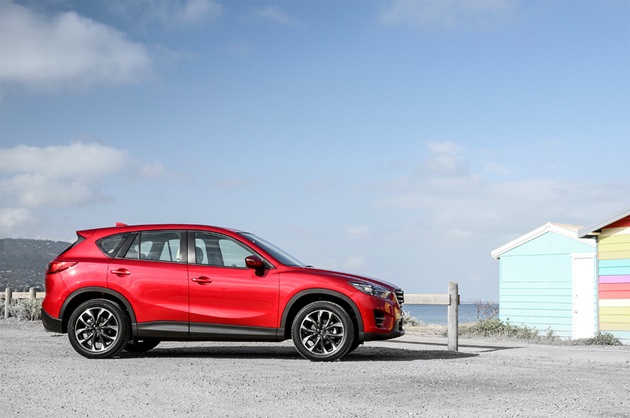25 June, 2015 By: Alex Forrest
If we had to single out the mid-size SUV which has set a new benchmark for the segment in recent years, there’s no doubt it would be the Mazda CX-5.
Critically, the CX-5 proved SUV buyers no longer had to sacrifice good handling, excellent safety, good affordability and driving fun when they went from a regular car to an SUV.
Deservedly, at the end of the 2014, the CX-5 was Australia’s most popular mid-sized SUV.
However, the CX-5 was launched in February 2012 and by its third birthday, it was due for an update.

In February 2015, Mazda launched a freshened-up CX-5 which brought a smoother and quieter ride, an electric park brake, a higher quality interior and an updated front end.
Externally, there’s a new front grille mesh and slightly different lights, but no major differences and that’s a good thing given its looks didn’t need fixing in the first place.
Under the skin is where the more important changes have been made.
Mazda has added an electric parking brake to all variants in the CX-5 range, which gives better access to necessities like cup holders and other storage spots.
Mazda’s also improved the ride of the CX-5 by changing the structure for the front and rear dampers and the bushes in the front suspension arms.

The new CX-5 is quieter than the old one thanks to improved sound insulation. The interior also gets new metal-finished buttons and knobs, which add to the overall quality feel.
Engine and gearbox choices are exactly the same as in the superseded model. When pushed hard, the noise from the 2.5-litre petrol can get intrusive, but it has enough torque not to require that too often.
The 2.5 is also much better-suited to this vehicle than the 2.0-litre petrol in the base model, which is breathless and buzzy. The 2.2-litre diesel is as highly capable as it’s always been.

| Price driveaway (as tested): |
$52,900 driveaway |
|---|---|
| Engine: | 2.5-litre petrol |
| Power: | 138kW @ 5700rpm |
| Torque: | 250Nm @ 4000rpm |
| Claimed fuel economy: | 7.4L/100km |
| ANCAP Rating: | 5 stars |
| CO2 Emissions: | 172g/km |
